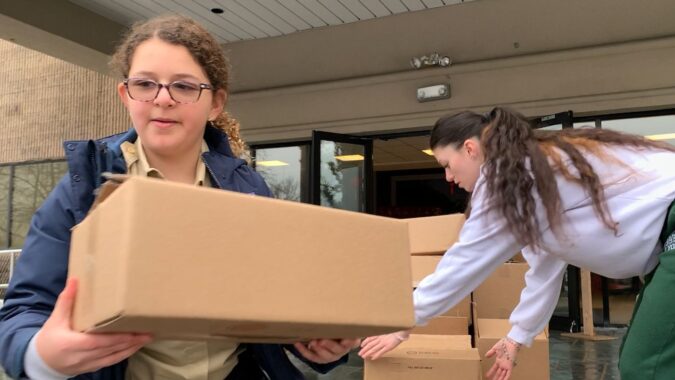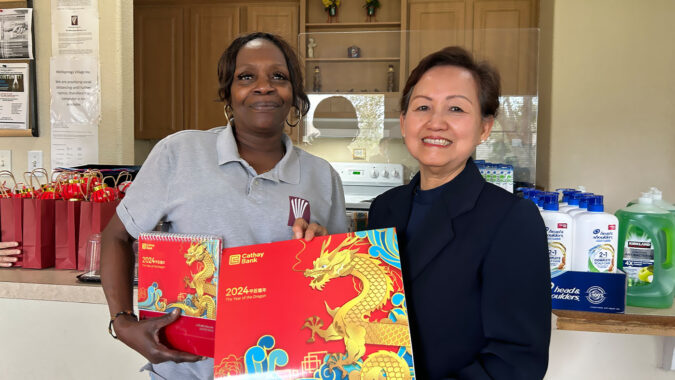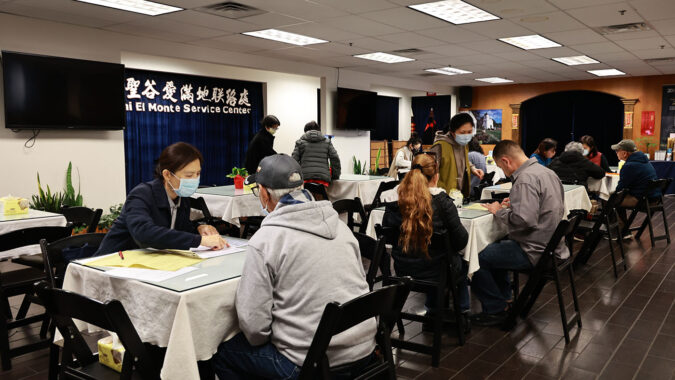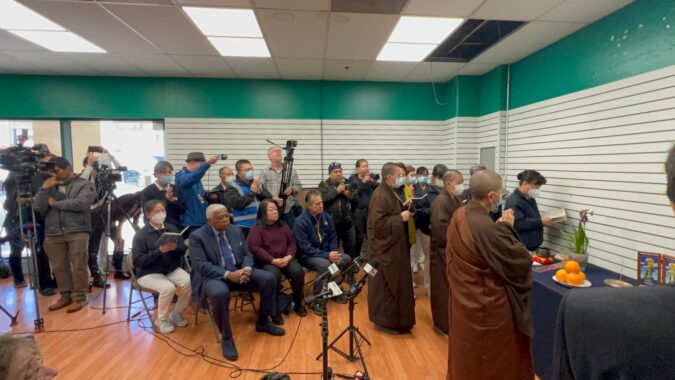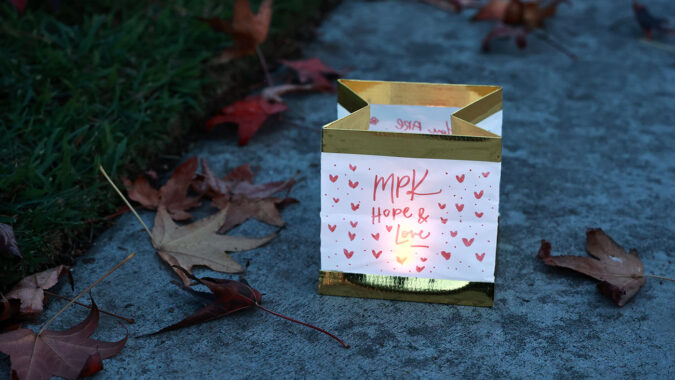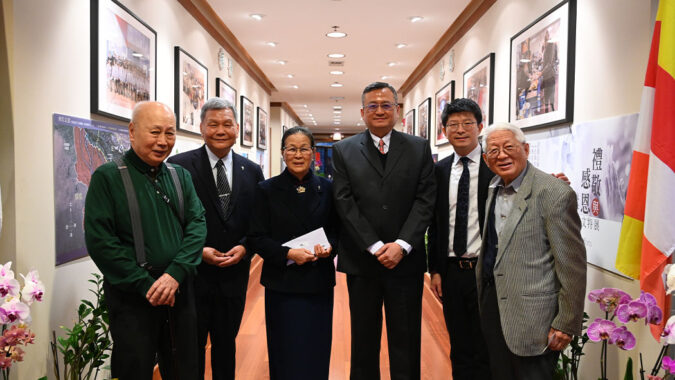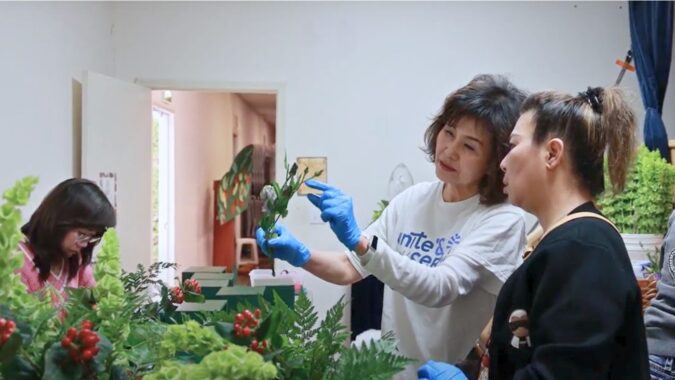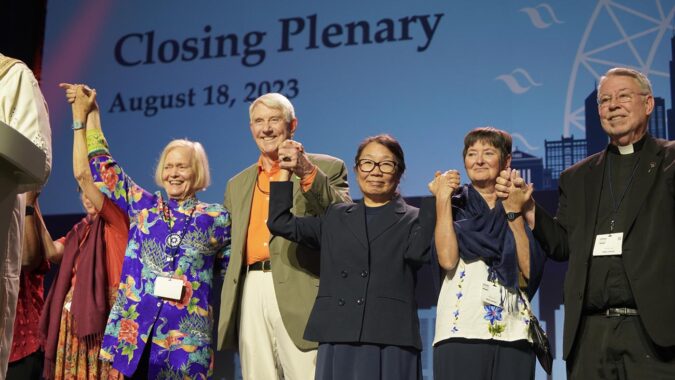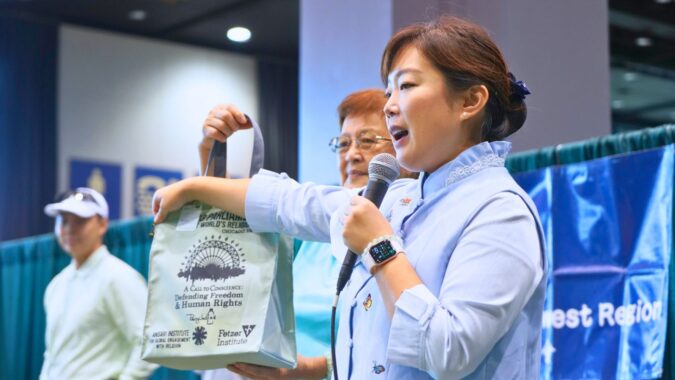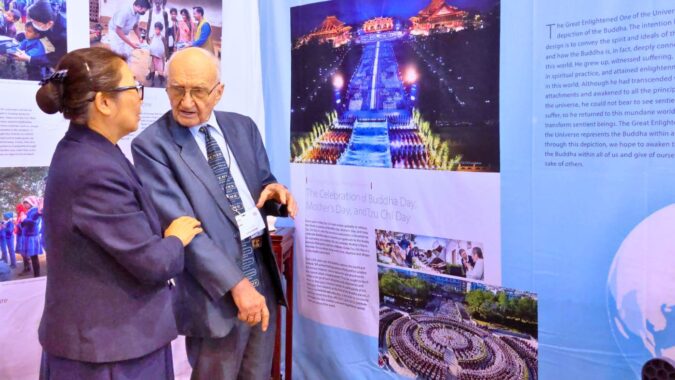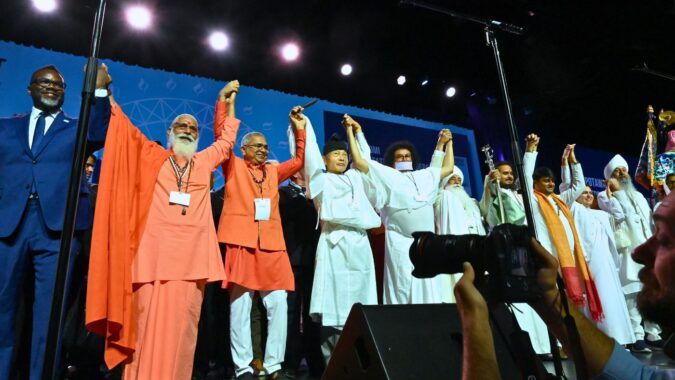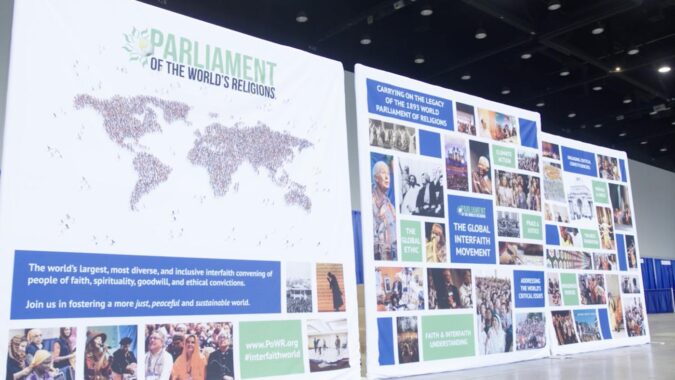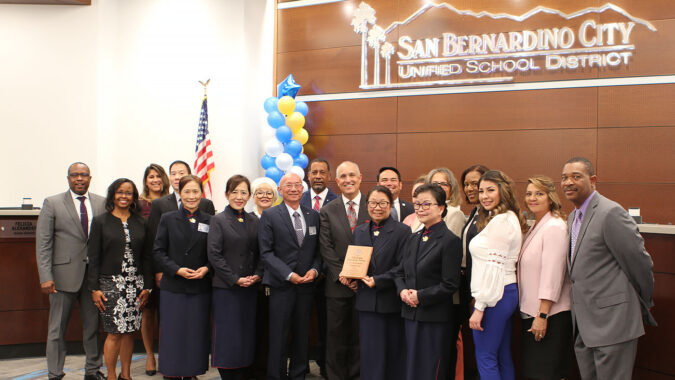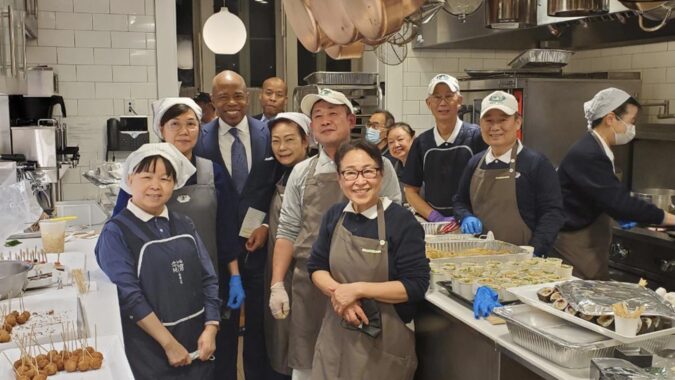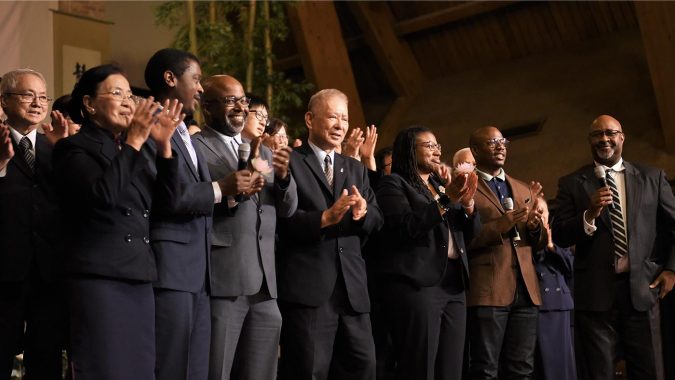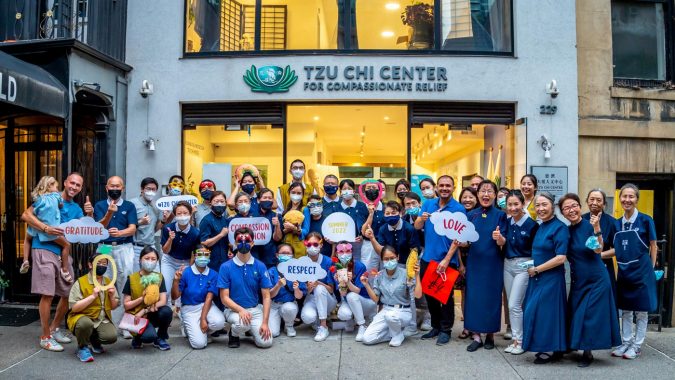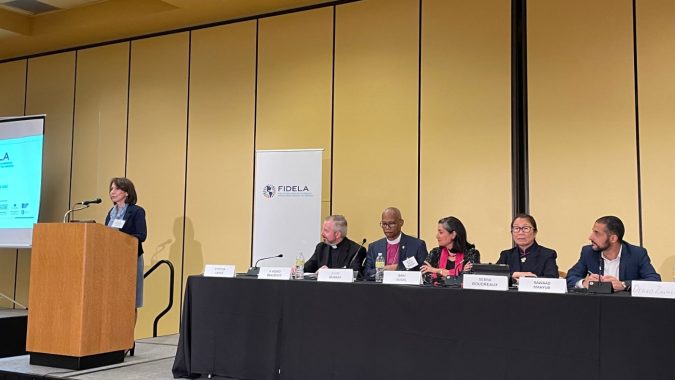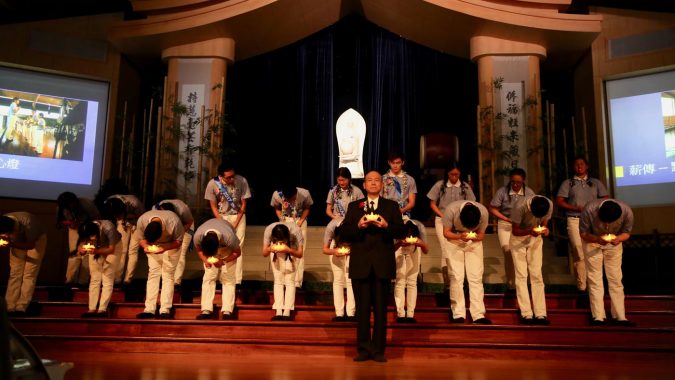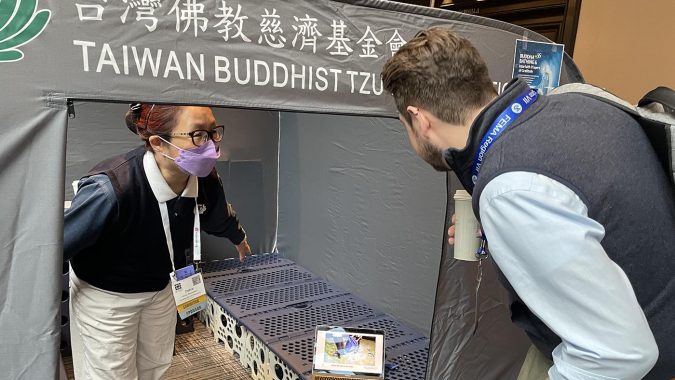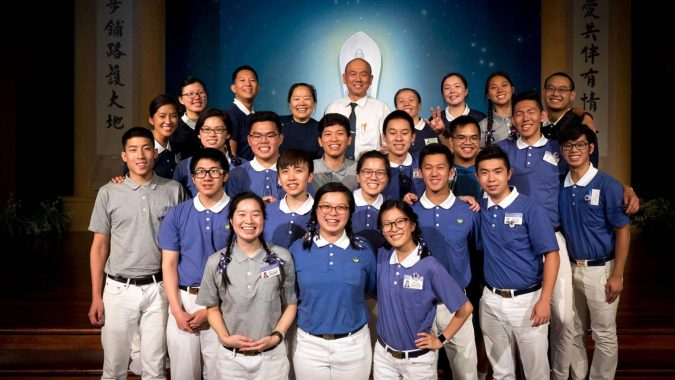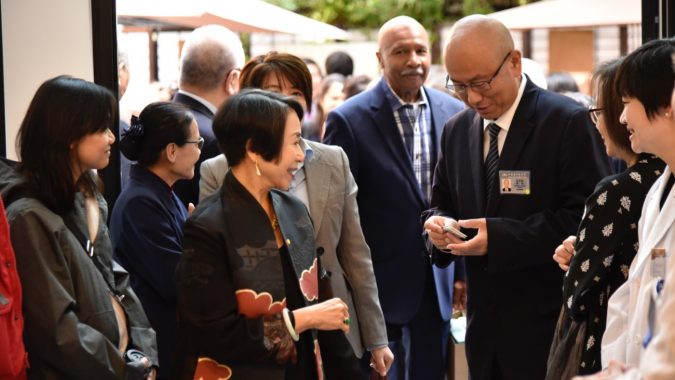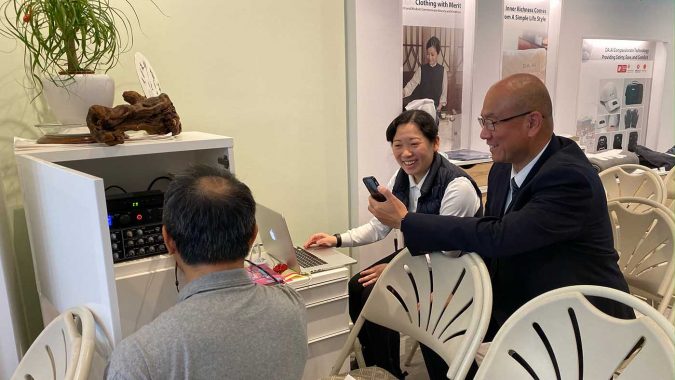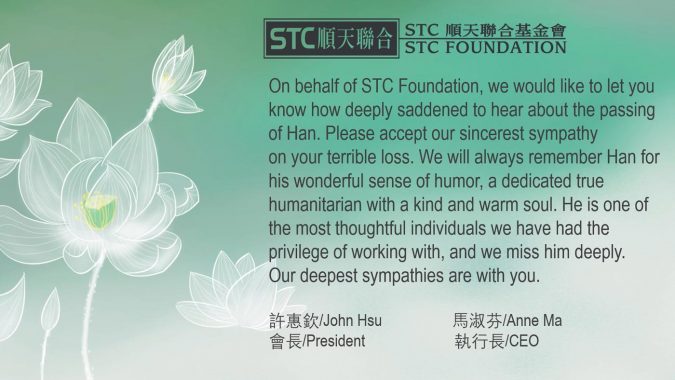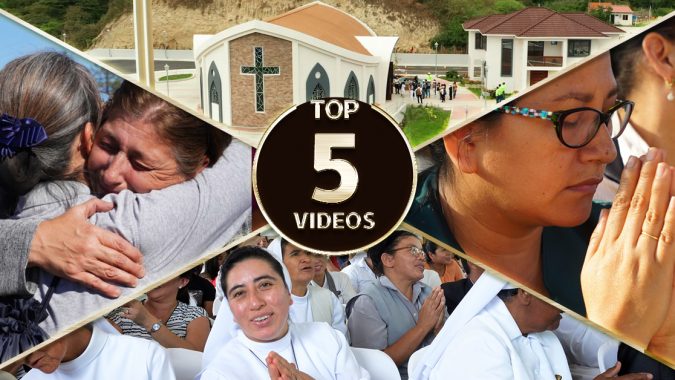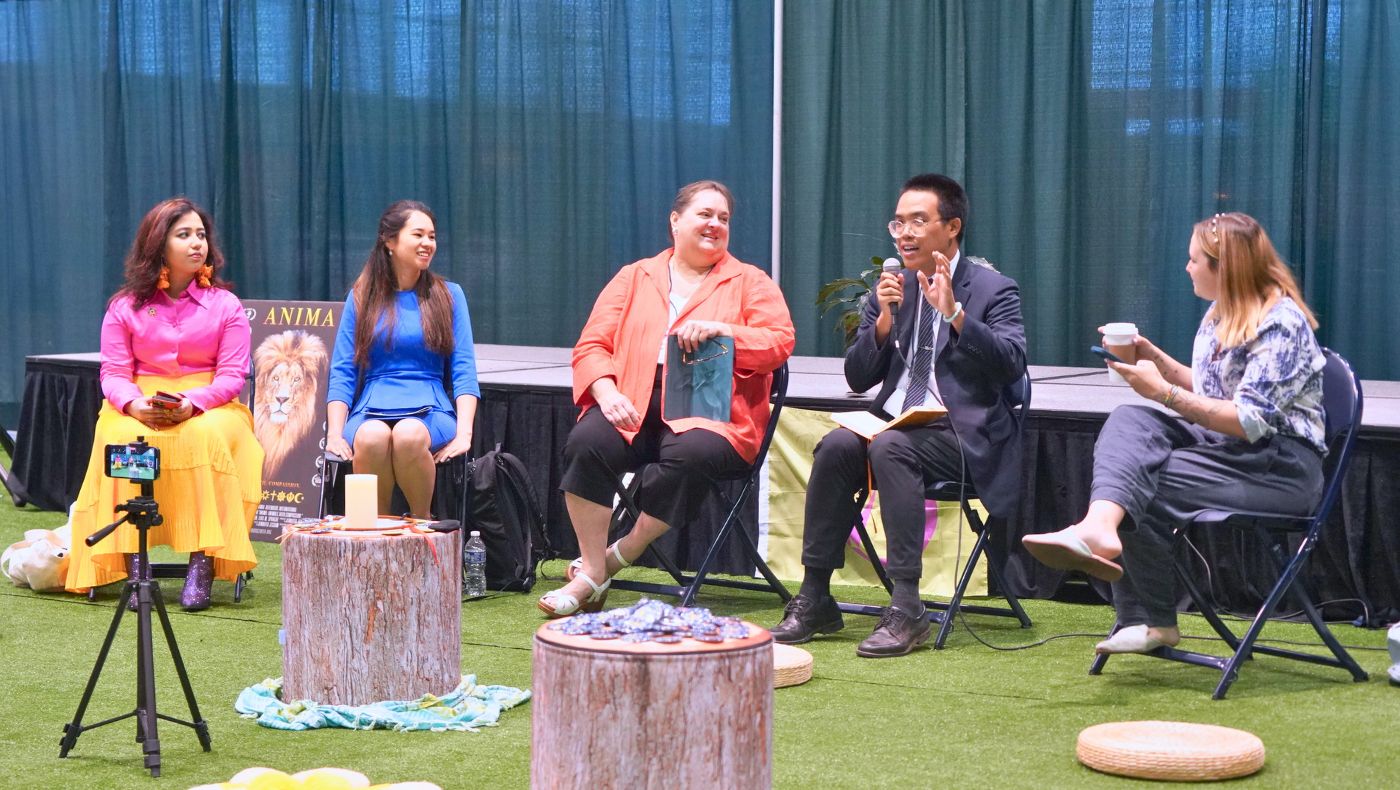
Written by Ida Eva Zielinska
On Tuesday, August 15, the second day of the Parliament of the World’s Religions (PoWR) in Chicago, the Tzu Chi delegation held three panels on diverse topics and two unique activities. The day began with discussions about the climate crisis and health systems.
“Climate Change at the UN: Outcomes of COP27” was moderated by Emily Echevarria, Director of Climate Action at the Parliament of the World’s Religion. The panelists were Steve Chiu, Buddhist Tzu Chi Foundation’s Representative to the United Nations; Lynnaia Main, the Episcopal Church’s Representative to the United Nations; Saphira Rameshfar, Representative of the Baha’i International Community to the United Nations Headquarters in New York; and Kehkashan Basu, the youngest Trustee of PoWR and the founder and President of the global social innovation enterprise, Green Hope Foundation.
If we wish to address the climate crisis in a holistic manner that leaves no one behind, we must reflect on what values lie at the heart of our transition. Do we continue to prioritize the extraction and exploitation of people and the planet, or can this moment of change bring us closer to coexistence with the natural world?
Steve Chiu
Tzu Chi Representative to the UN
Together, the group discussed how their respective faith traditions advocate the UN Framework Convention on Climate Change and reflected on the outcomes that emerged from COP27 in Egypt, from the loss and damage fund to how faith-based organizations collaborated to amplify solutions from the local context.

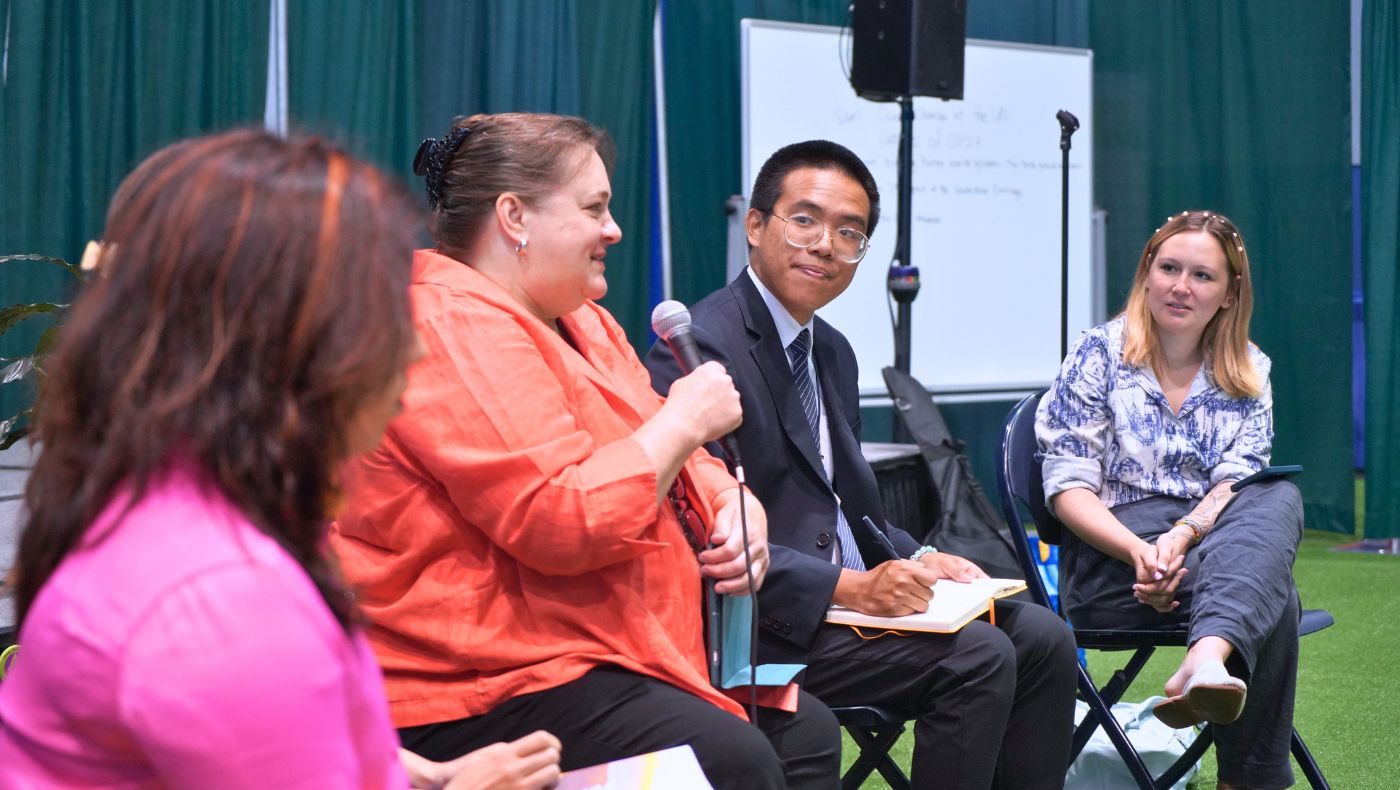
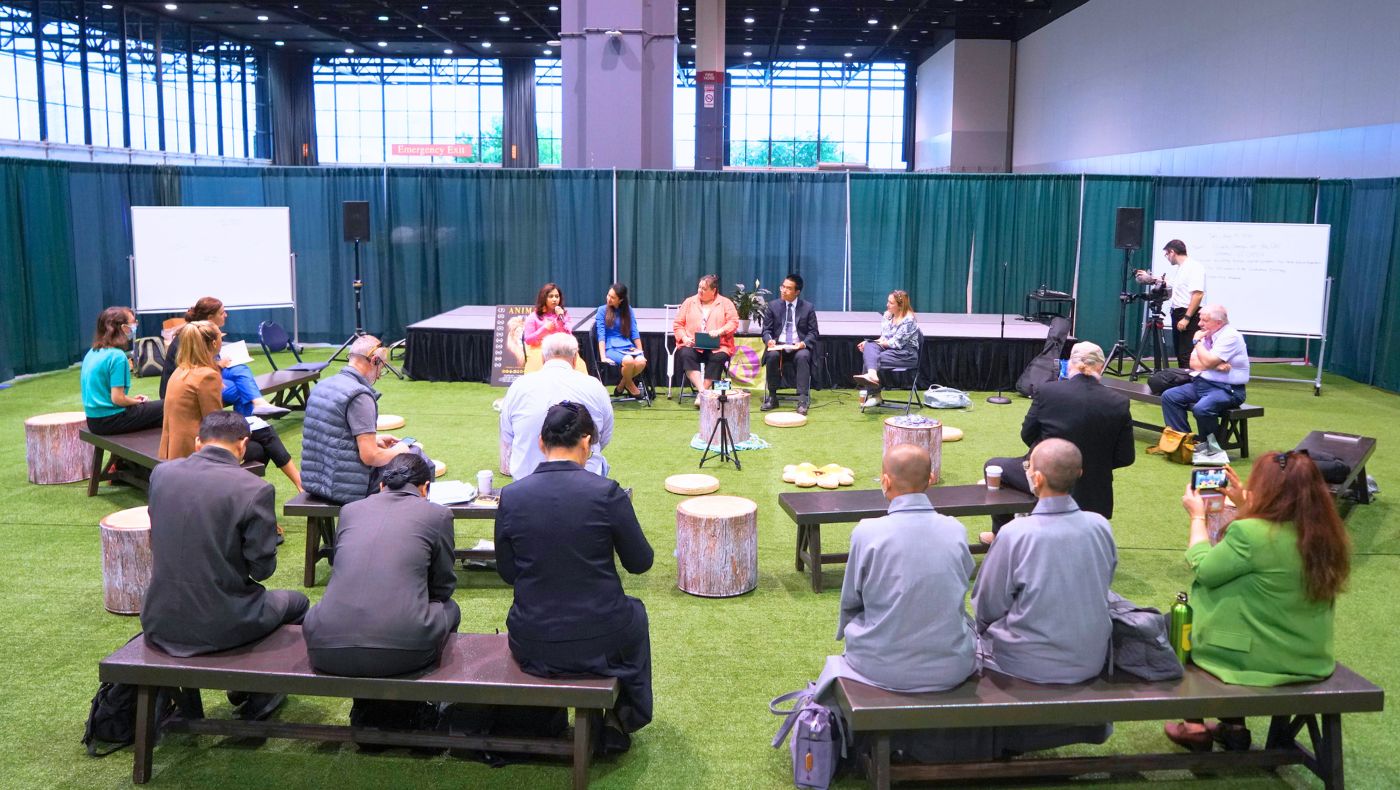
A panel titled “Climate Change at the UN: Outcomes of COP27” lifts up discussions on how faith traditions advocate the UN Framework Convention on Climate Change, and shares reflections on the outcomes from COP27 in Egypt. Photo/Héctor Muniente
COP27 marked the first time that food systems were prominently highlighted in the side events and pavilions that were organized, with Tzu Chi working with 15 other partner organizations to co-create the Food4Climate pavilion, mainstreaming a transition toward diverse and resilient food production and consumption systems.
Steve Chiu
Tzu Chi Representative to the UN
The second panel, “Building Better Health Systems, the Faith-Based Approach,” moderated by Sarah Chu, Buddhist Tzu Chi Charity Foundation, brought together Edie Yau from the Alzheimer’s Association, Asma Ahad from the Islamic Food and Nutrition Council of America, and Yuru Chou from the Buddhist Tzu Chi Charity Foundation. The panel examined gaps in health systems and ways to address them.
Edie Yau said, “Alzheimer’s and other dementias affect six million people in the U.S. and 55 worldwide.” While doctors now view these as diseases rather than signs of aging, there is still a lot of stigma surrounding them, and most people are reluctant to share their issues with a doctor. Moreover, there is a lack of specialists and access to treatments. For instance, neurology deserts exist in the U.S., with 10 per 10,000 patients. Health systems must improve to better prepare for earlier detection and diagnosis, as delayed detection negatively impacts the benefits of newly existing treatments. In meeting these challenges, faith organizations are essential as they are trusted and often the first source of support, helping patients and their families navigate the complex healthcare system.
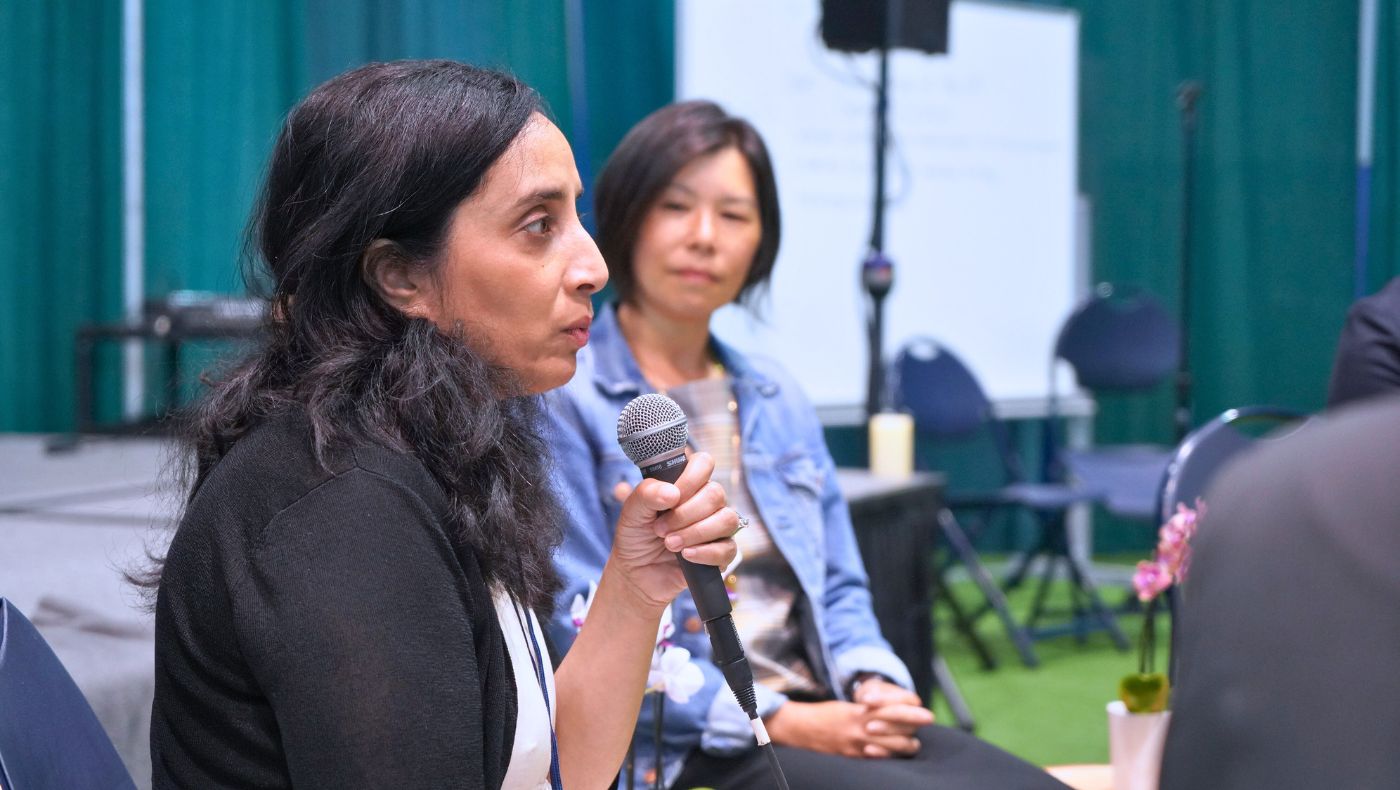
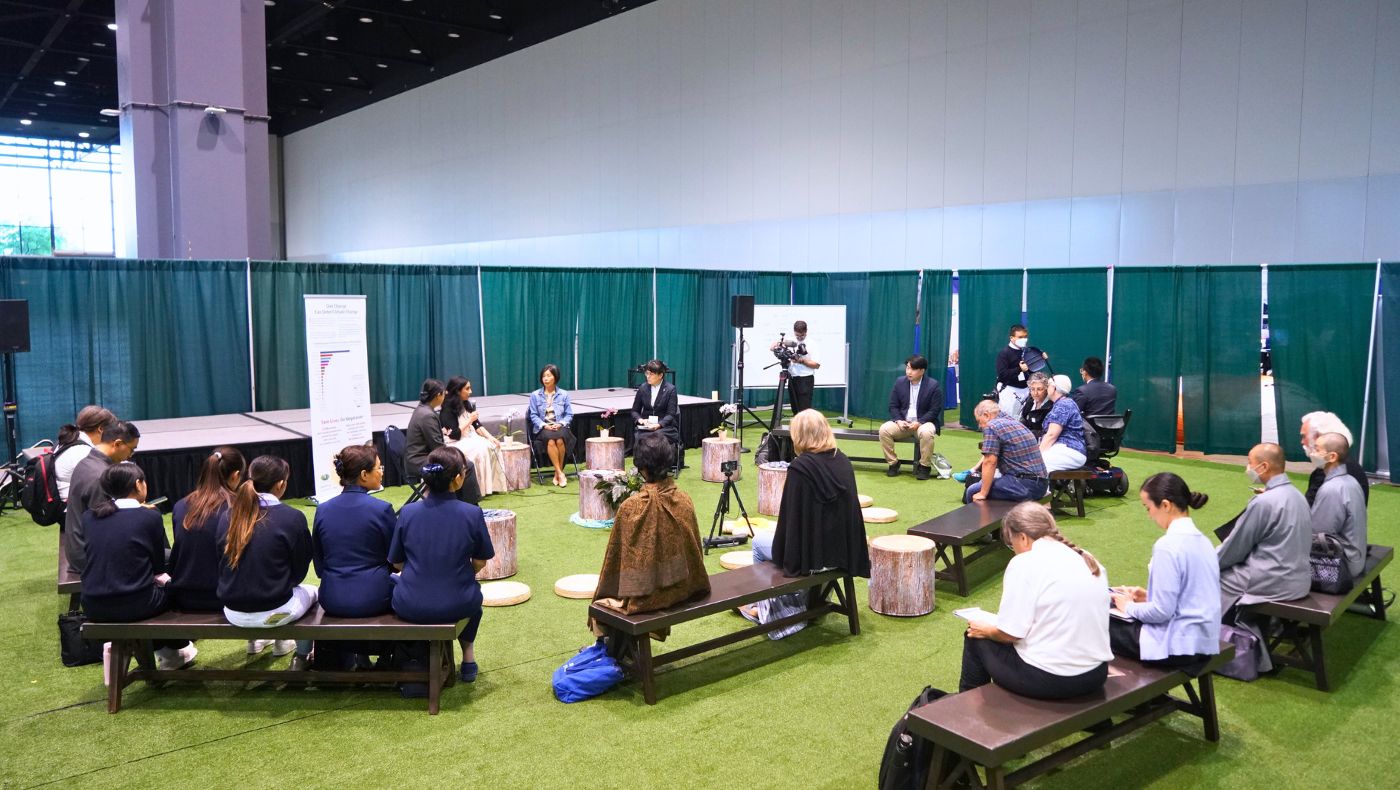
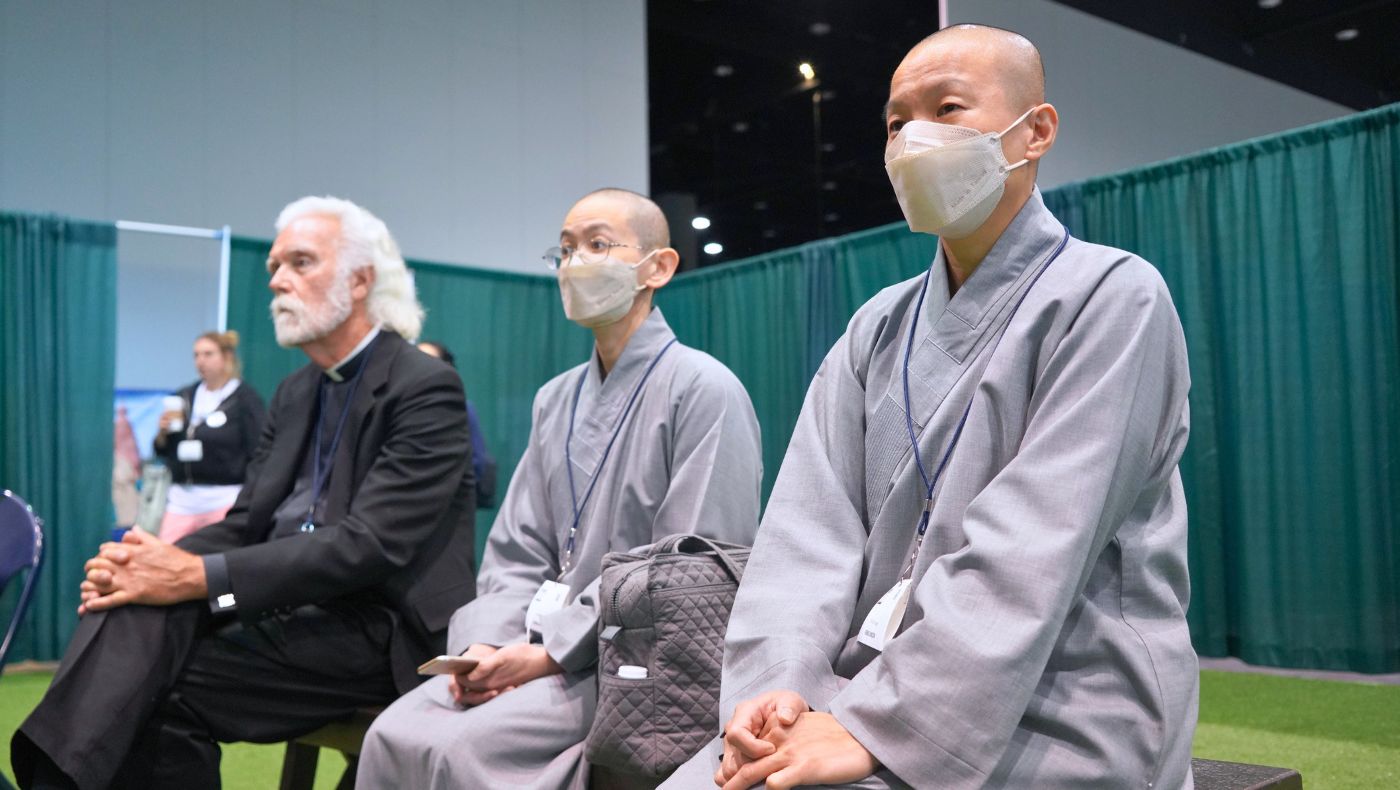
The second panel of the day, “Building Better Health Systems, the Faith-Based Approach,” investigates gaps in health systems and ways to address them skillfully. Photo/Héctor Muniente
Asma Ahad spoke of challenges in Muslim countries and communities regarding health care emerging from cultural and religious beliefs. For instance, 7/10 vaccine hesitant countries are Muslim, and now a whole generation was raised without any vaccination, which has far-reaching consequences. Furthermore, when developing policy, minority group concerns are not considered, which reduces trust in the healthcare system. “Challenges and barriers for Muslim communities are having a seat at the table,” she said. Gap solutions Ahad introduced were looking to identify issues and give them a name, thereby opening a path to systemic changes. Then, having a short, mid, and long-term plan and building improved infrastructure.
Yuru Chou spoke of why Master Cheng Yen started the Tzu Chi Medical Foundation and introduced its healthcare system and how it has mechanisms to keep it adaptive and capable of continual improvement. Tzu Chi’s medical mission formed after the charity mission when Master Cheng Yen observed that medical problems or illness are often the root cause of poverty issues. “When a person is sick, the whole family will be dragged down if they don’t have resources and support,” Chou said. Thus, there was a need for reliable medical institutions to treat underserved people or those unable to afford care.
Tzu Chi established a network of eight hospitals and various clinics in Taiwan, staffed by over 10,000 professionals. It also created an international medical volunteer association. However, operating a medical system is far from easy. Chu spoke of how persistent attention to the mission plus helping everyone involved see the meaning of their work is essential to maintaining motivation and building better health systems. “A lot of people are willing to join because they believe in the mission, that medical care is a human right,” she said. Opportunities to listen and gain insights from other groups are another valuable mechanism. For instance, dialogue between volunteers and hospital staff, plus joint home visits to learn about needs directly from community members.
A Buddhist Ceremony and Storytime
Midday, the Tzu Chi delegation diverged from panels with two sessions of a different kind. Tzu Chi’s three Dharma Masters, Shih De Yuan, Shih De Cheng, and Shih De Huang, and Allan Chung, who is on the Dharma as Water team in charge of translating Dharma Master Cheng Yen’s writings into English, assembled in the Buddhist prayer room to present a simplified form of the Buddha Bathing Ceremony to PoWR attendees, allowing them to experience a Buddhist form of worship firsthand. The prayer room had filled to capacity, with over 30 people present by the time the session began.
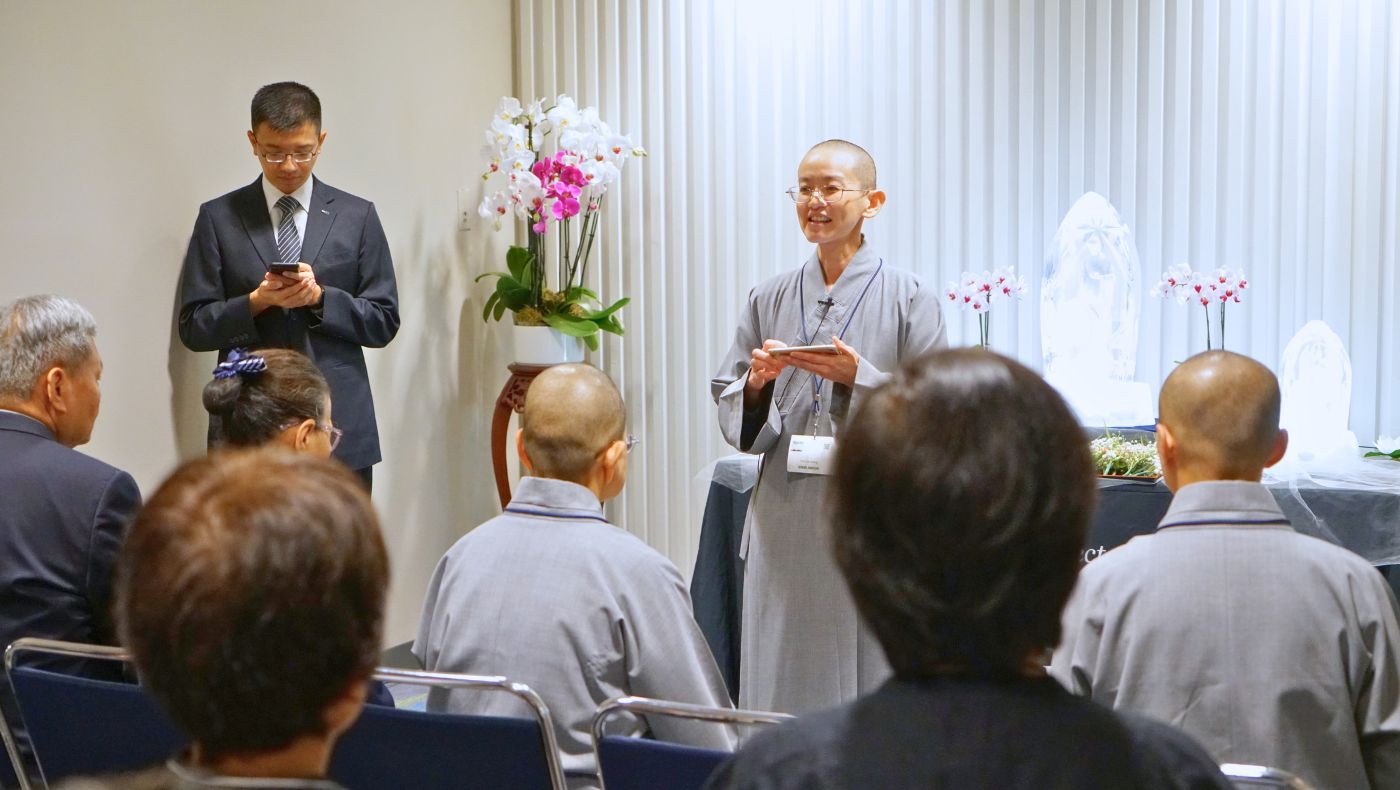
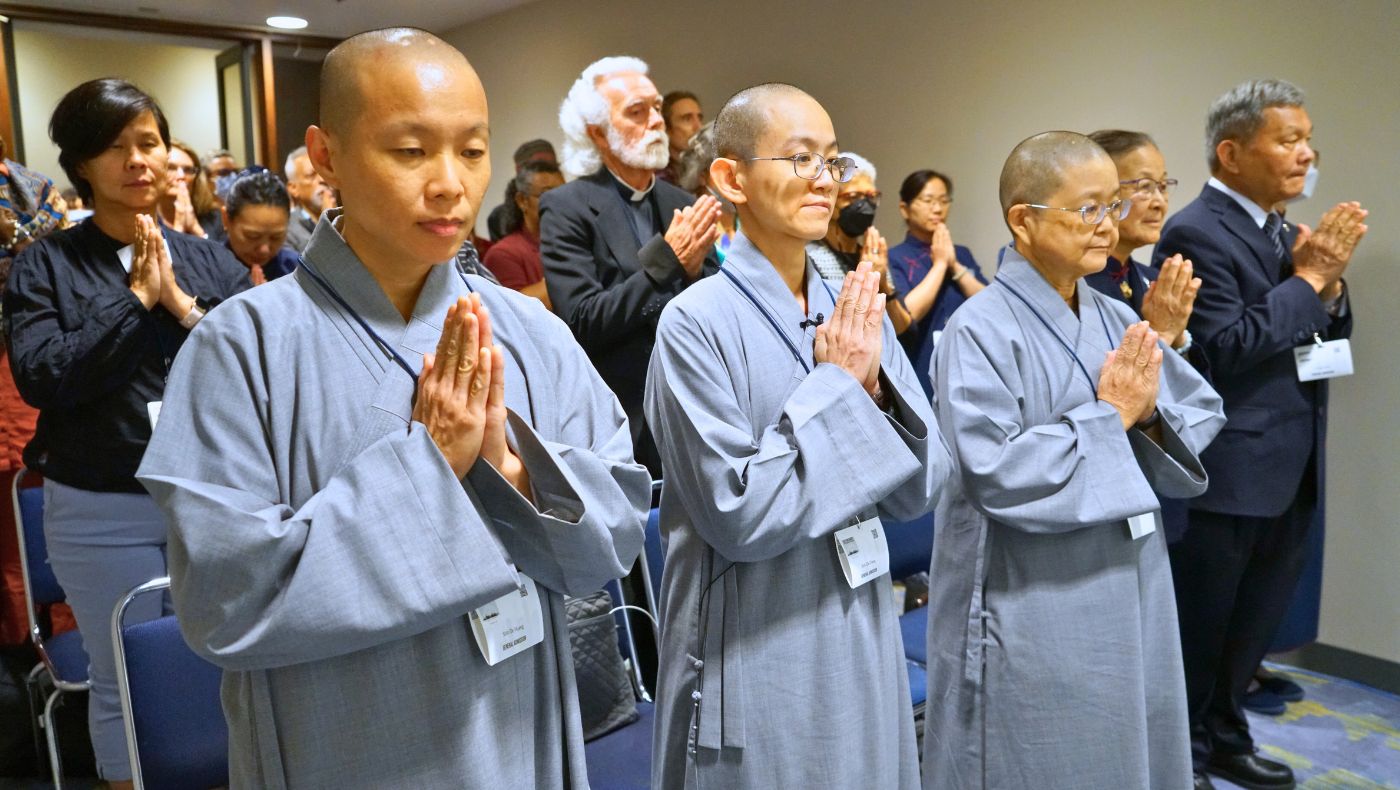
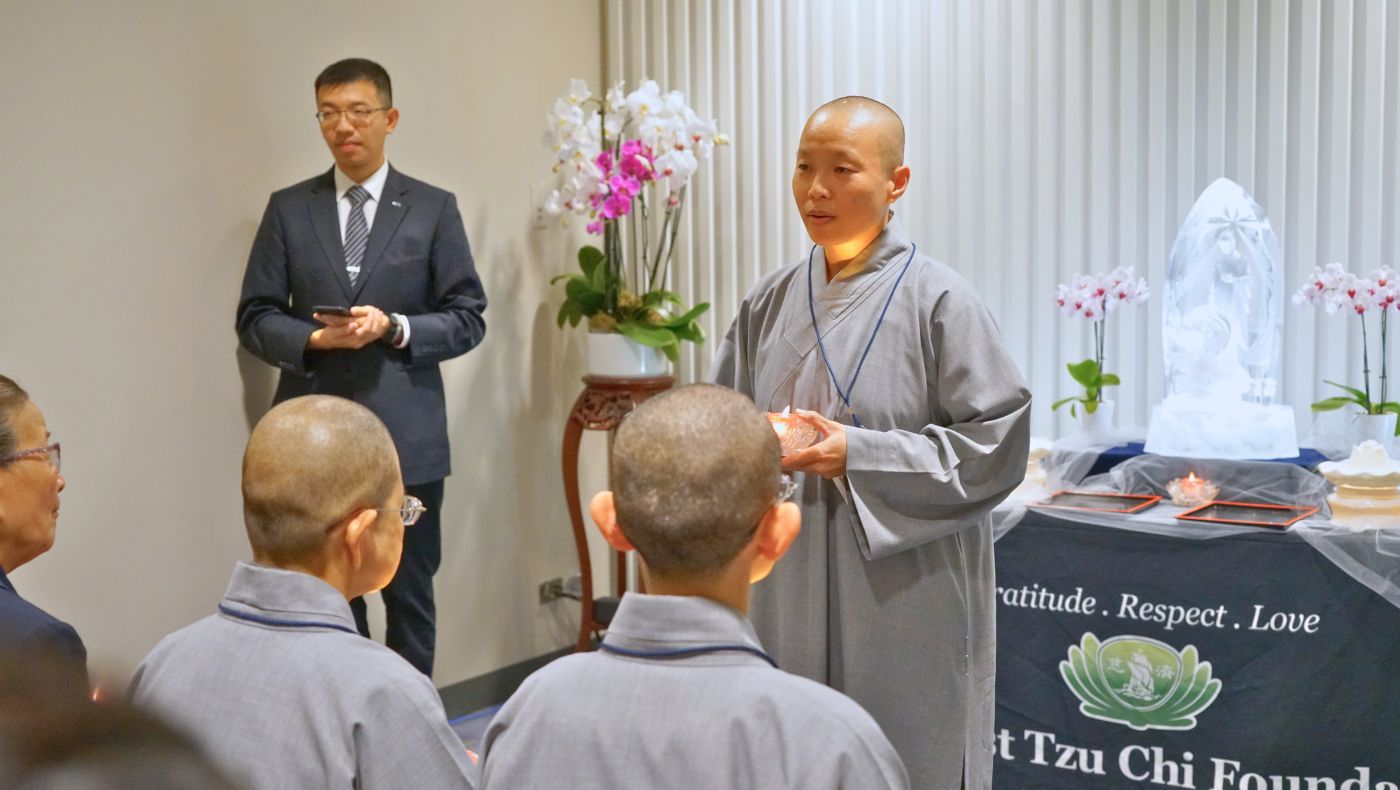
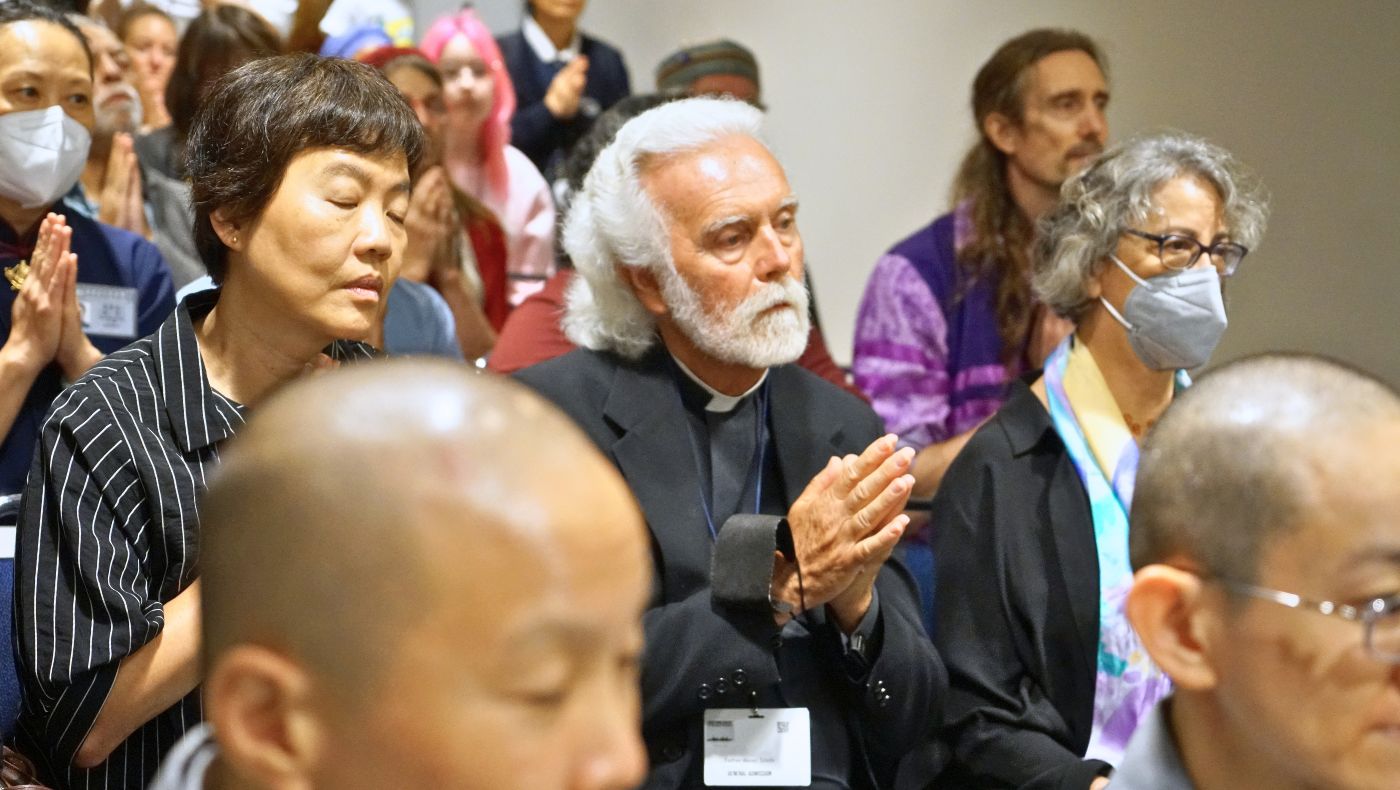
Tzu Chi’s three Dharma Masters, Shih De Yuan, Shih De Cheng, and Shih De Huang, assemble in the Buddhist prayer room to present a simplified form of the Buddha Bathing Ceremony to PoWR attendees. Photo/Dan Ferrara
Once Chung and the Dharma Masters explained the meaning of the ceremony, intended to help cleanse oneself of inner afflictions to allow our pure Buddha Nature to emerge and shine, Tzu Chi volunteers demonstrated how to take part, and the participants each had a turn. At the same time, more people were arriving and joining the session. At the conclusion, participants held electric candles in lotus-shaped holders as they listened to a favorite Tzu Chi song, Love and Care for All, which moved some participants to tears.
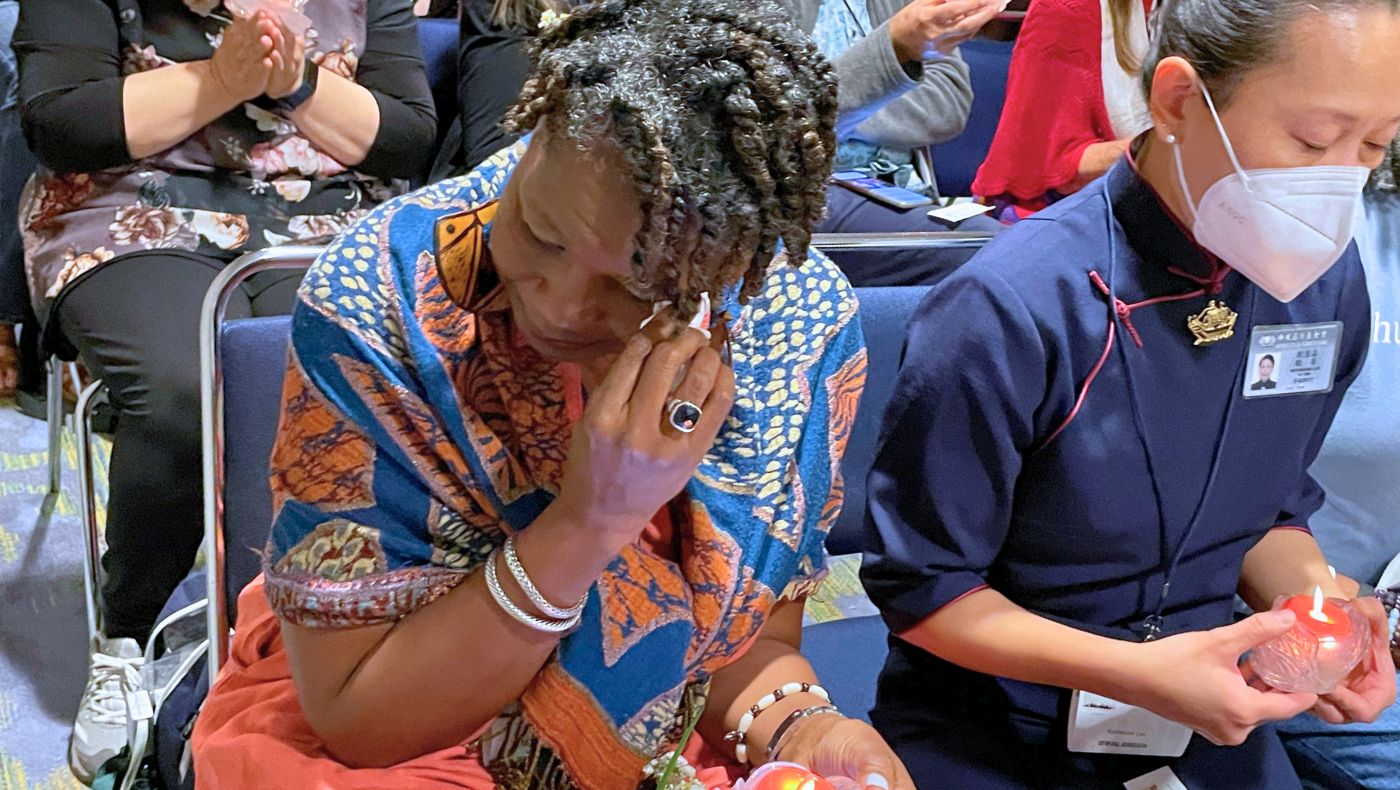
Shortly after lunchtime, Dharma Master Shih De Cheng read the storybook The Dear King Saves a Man to a group of kids in Tzu Chi’s children’s booth. The story introduced Buddhist ideas, namely that the animal world is pure, while the human realm can be vicious as people have mental afflictions that influence their thoughts and behavior. The lesson offered was that if we are mindful and constantly reflect on ourselves, we can return to our original purity and goodness.
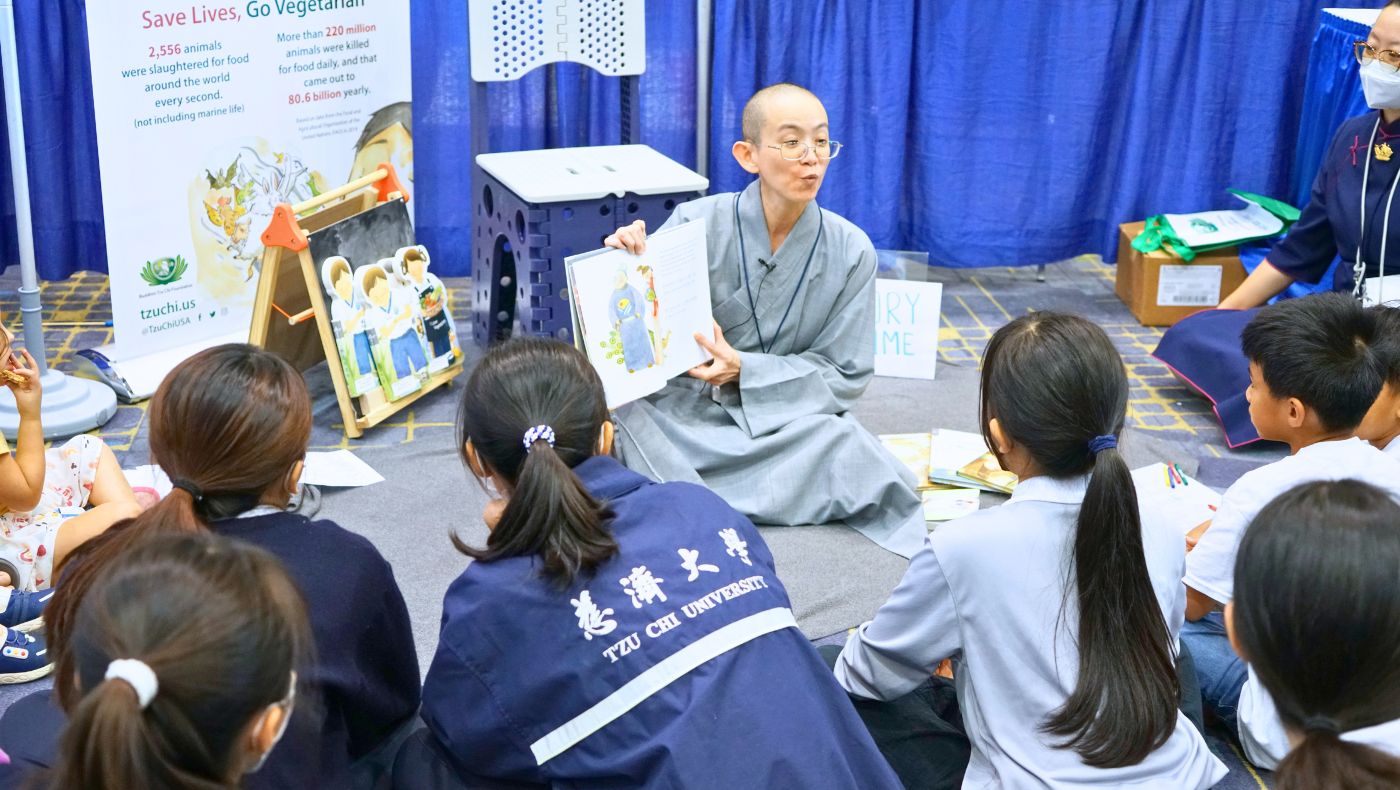
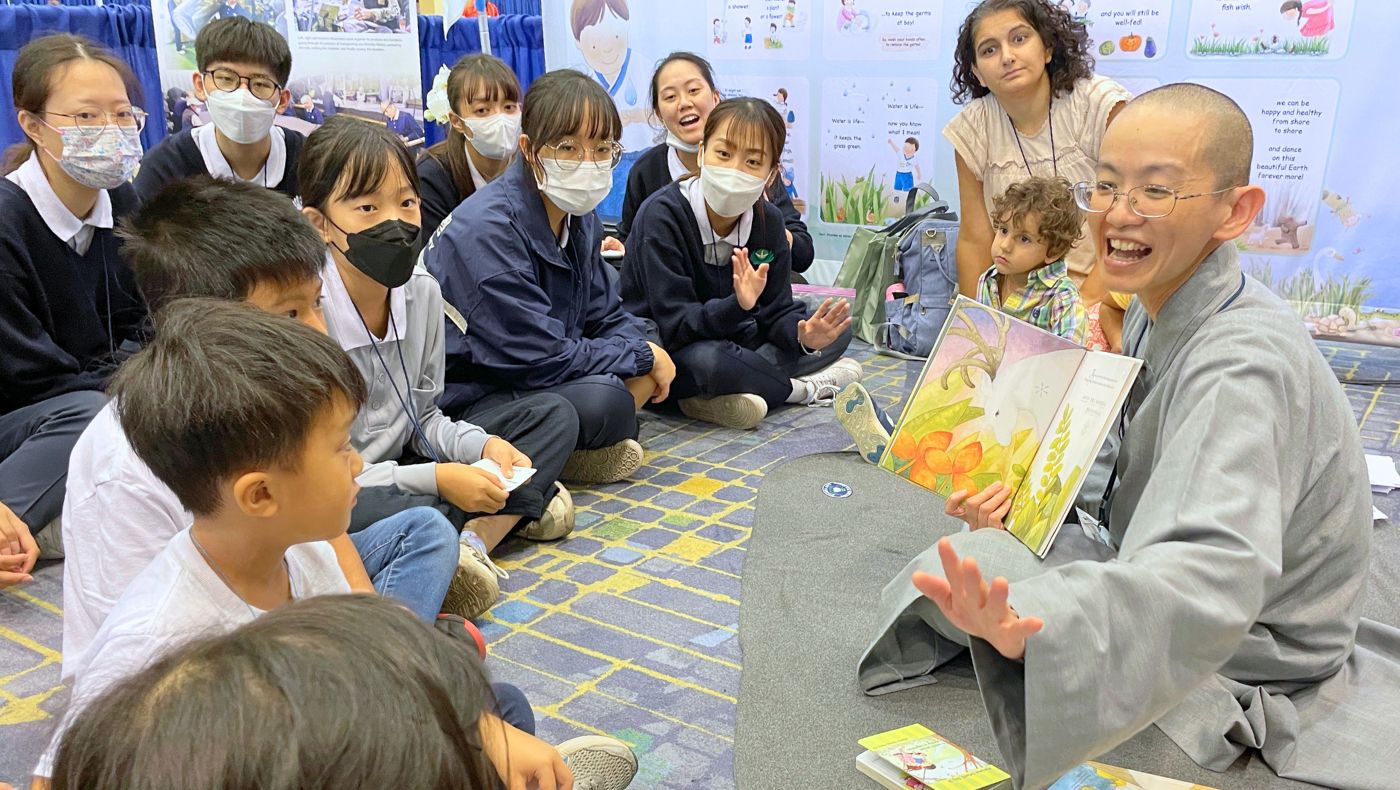
Addressing Needs in the Buddha’s Homeland
The afternoon session took PoWR participants on a voyage to southern Nepal and northern India. Despite being the birthplace of Buddhism and well-frequented by tourists and pilgrims, the region lacks resources, including education, medical facilities, job opportunities, and infrastructure development. “Buddhism in Action: Turning Life Around in the Buddha’s Homeland,” moderated by Dr. Johan Alwall from the Buddhist Tzu Chi Charity Foundation, featured four Buddhist organizations determined to turn life around for those in greatest need.
Ven. Ayyā Dhammadīpā, from Buddhist Global Relief, described the work of the aid organization founded by Venerable Bhikkhu Bodhi. The organization takes action to raise funds to work in partnership with other organizations. Starting with just five partner projects in 2008, it has 60 partners worldwide today. “We work with all sorts of folks, not just Buddhists,” she said, selecting projects for communities and across communities without focusing on religious affiliation.
The primary purpose is to combat hunger, hoping that with their nutritional needs met, people can actualize their fullest potential for goodness and meaning in their lives. Buddhist Global Relief helps partner organizations provide food assistance, develop better long-term sustainable food production methods, educate girls and women, and give women opportunities to start right-livelihood projects. Dhammadīpā gave some examples of how a few partners are changing lives. “Everything we do is informed by the Dharma,” she said, the goal being “to nourish in ways not just related to food.”
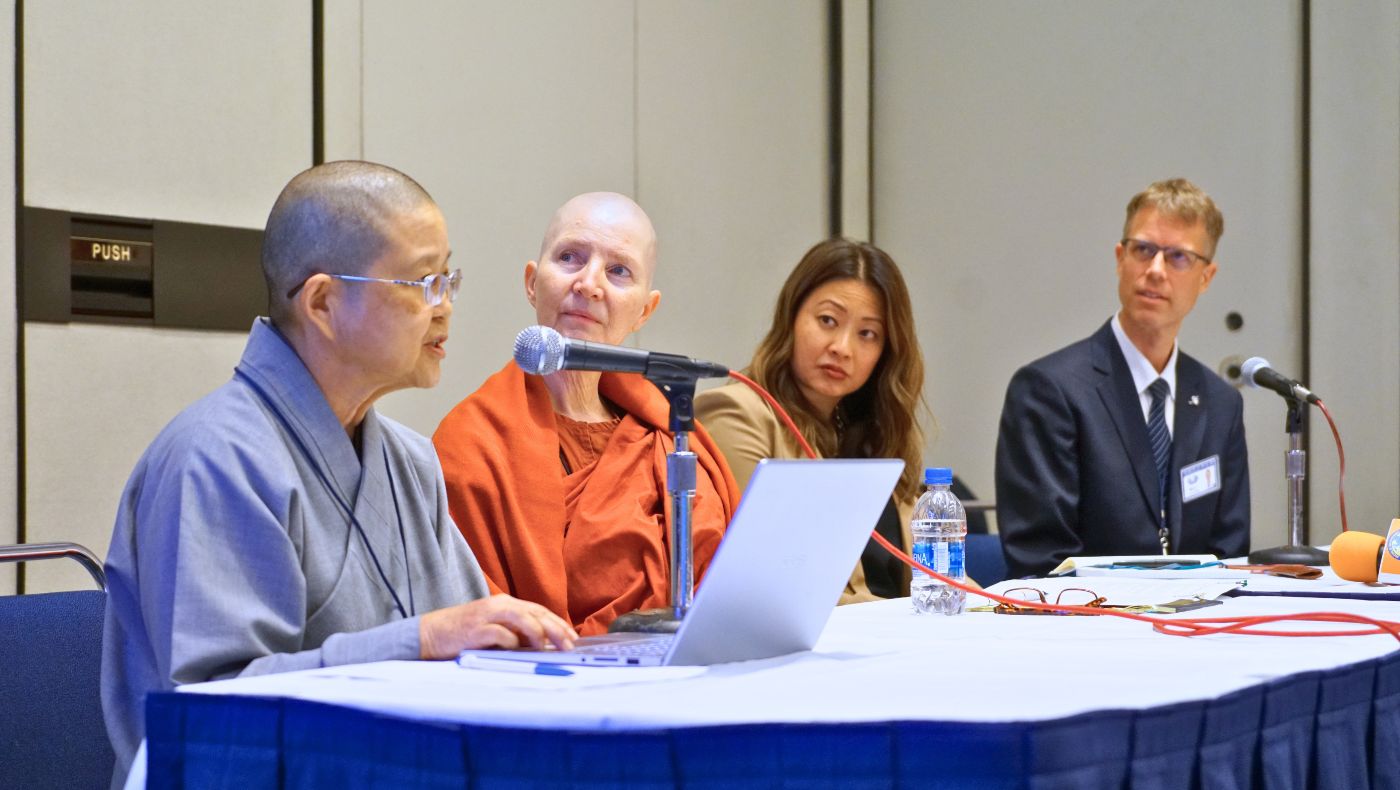
Dharma Master Shih De Yuan spoke next, presenting Tzu Chi’s aid projects in India and Nepal. The first project was in 1993, following a severe flood, and involved building 1,800 houses. After the 2015 earthquake, Tzu Chi’s relief helped more than a million people. In 2022, Tzu Chi returned to Nepal to relieve suffering, beginning in Lumbini, home to Lumbini Garden, the sacred Buddhist site where the Buddha was born. “Life inside and outside the Lumbini Garden is totally different. When we walk out of Lumbini Garden, we can see the life of poverty,” Shih De Yuan explained.
Tzu Chi’s aid focuses on students, as the dropout rate due to family poverty is grave. In addition to distributions of supplies and the subsidy of nutritious lunches plus transportation fees, Tzu Chi volunteers launched a character education program based on Master Cheng Yen’s Jing Si Aphorisms.
[One] of their favorite quotes from Jing Si Aphorisms [is] ‘Do not underestimate yourself; everyone has unlimited potential.’ The Jing Si Aphorism has raised their confidence.
Dharma Master Shih De Yuan
Jing Si Abode
Mid-term relief here will involve building a school and 11 model homes.
In India, Tzi Chi’s aid is centered in Bodhgaya, another sacred site, as this is where the Buddha attained enlightenment, and assistance extends to surrounding villages. Shih De Yuan shared that in this region, “most children don’t go to school due to the caste system. They become beggars to get by.” Tzu Chi volunteers conduct home visits, provide aid according to needs, and offer Buddhist guidance that inspires the villagers to give back. Some began saving a handful of rice to donate to others in need. A group of housewives received training to learn about recycling and gained environmental awareness, which motivated them to mobilize the community to join together and clean up their village.
Since Tzu Chi came, we learned that in addition to receiving aid, we can do our part to give; we can give in any way, not necessarily money.
Care Recipient in India
In conclusion, Shih De Yuan said:
As disciples of Dharma Master Cheng Yen, Tzu Chi volunteers have compassion and loving-kindness for others. The people in Lumbini, Nepal, and Bodhgaya, India, can feel our sincerity toward them. Turning life around in Buddha’s homeland will be a very long journey, but Tzu Chi volunteers have made a vow to help the people there achieve it, no matter how long it takes.
Dharma Master Shih De Yuan
Jing Si Abode
Ven. Lopön Jigme Tingdzin, a Drukpa lineage nun, joined via video message from Nepal and shared the unique way of practice that she and her fellow nuns are engaged in, which involves learning Kung Fu, walking or bicycling pilgrimages where they raise environmental awareness along the way, disaster relief, and more. “They break stereotypes for Buddhist women and have inspired so many young girls in their country,” Carrie Lee, President of Live to Love International, which provides humanitarian relief and education in the Himalayas, and is a representative of the nuns, said.
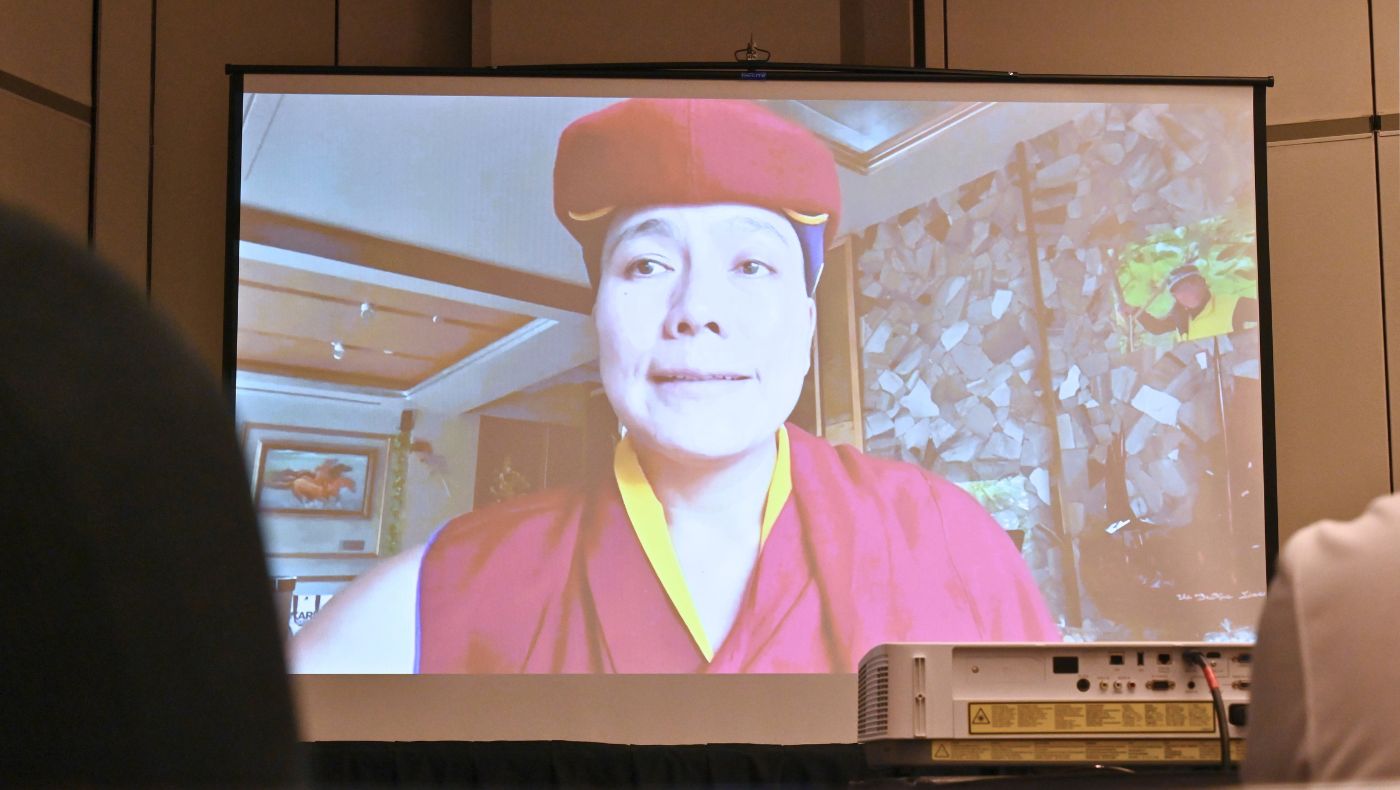
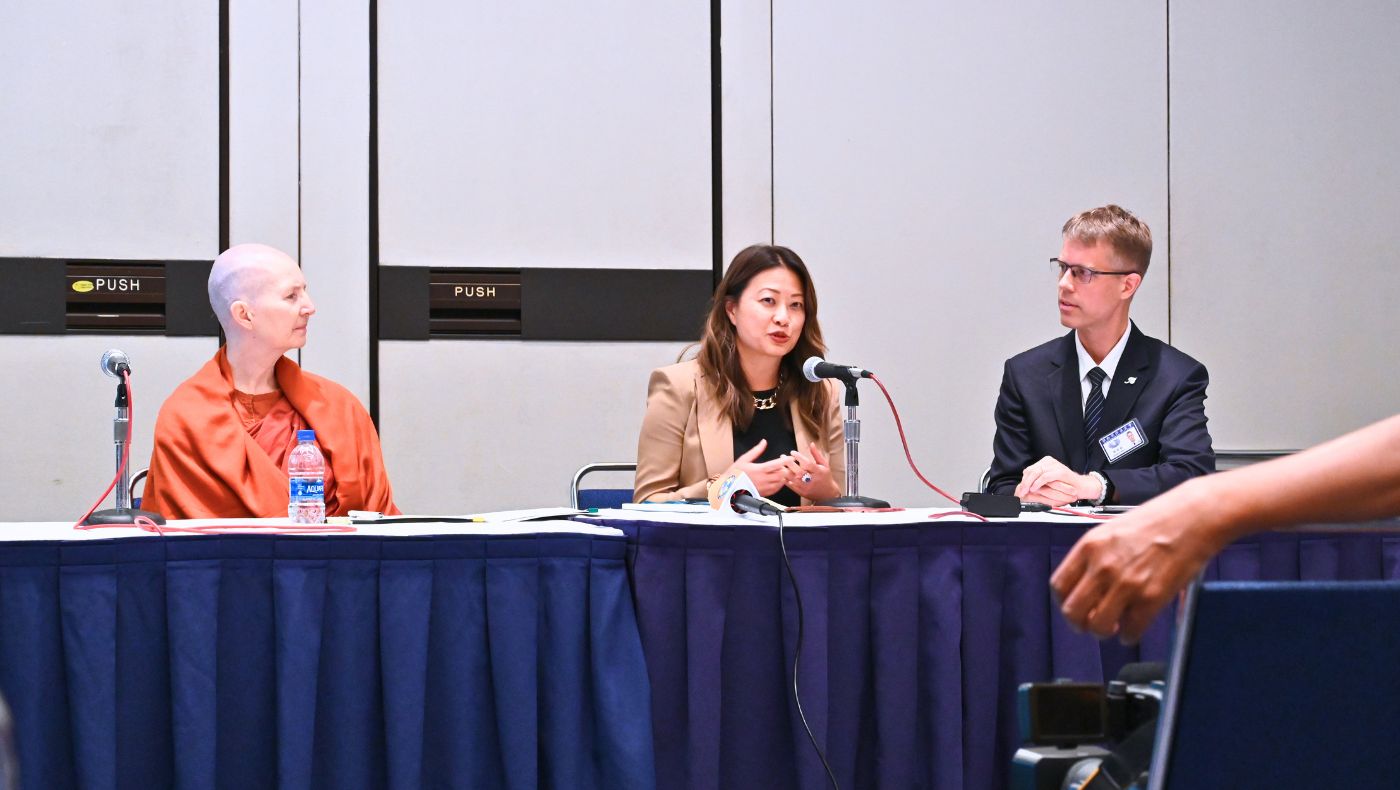
Lee also revealed the risks the nuns undertake and face. Just bicycling across Nepal and India, trips of up to 2,500 miles that can take months, is perilous. “We have to cycle on highways where there are so many buses, trucks, and so many cars. So it’s very dangerous, very scary. We never know what can happen next minute because the cars are coming from all directions, and there are no rules and regulations,” Ven. Tingdzin explained. But there is more:
They have received threats to burn down their nunnery. Very conservative pockets where they are from do not believe that nuns should be seen or have leadership roles. I’m sure many of us have heard the story; if you are a well-behaved nun, you can come back in your next life to become a monk and then become enlightened. So many of them have been assaulted, physically and sexually. Sometimes people throw stones at them to discourage them from doing what they do, and part of them learning Kung Fu was to protect themselves.
Carrie Lee
President
Live to Love International
And yet, despite the dangers and the fact that they come from places where even laughing in public is not encouraged for girls and where people don’t expect girls to do much outside of the kitchen or housework, the nuns persist. “Over the years, we learned that to really practice spirituality, we must be active, and we cannot afford to be shy. We must be physically strong and confident.” Ven. Tingdzin said in her message. “Even though it’s very tough, we never stopped doing it because we deeply hope and wish that what we are doing can set a good example for the rest of the world.”
The nuns did search and rescue after the 2015 earthquake in Nepal. “We went to places where other people were too scared to go because it was too dangerous for men’s lives,” she shared. They brought food, medicine, baby food, and many other things. During the pandemic, they also collaborated with Tzu Chi to help provide medical supplies and train women to be public health educators. And the nuns are not about to stop this path of active service alongside prayer as their Buddhist practice.
Praying is definitely a very important part of our practice, but it is not the only way to practice Buddhism and compassion, especially when there are so many people who need help out there. We all have to be so alert because the whole world is going through global warming problems, climate change problems, and the whole world is suffering. So it’s a very crucial time. We do talk a lot about compassion, but it’s time for us to put our compassion in action and do something.
Ven. Lopön Jigme Tingdzin
Drupka Lineage
Day 2 was certainly an impactful day filled with powerful sessions. Read about Tzu Chi’s presence on Day 3 of the Parliament of the World’s Religions in our next blog.

